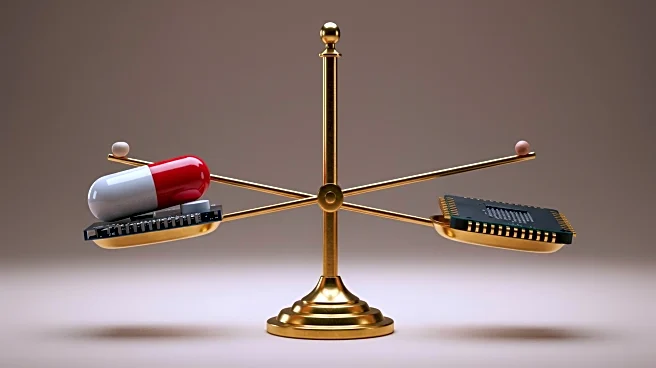What's Happening?
The Trump administration has agreed to cap tariffs on pharmaceuticals, lumber, and semiconductors imported from the European Union at 15%. This decision follows previous threats of higher tariffs, which raised concerns about potential impacts on trade and consumer prices. The agreement aims to stabilize transatlantic trade relations and provide clarity for businesses affected by tariff changes.
Why It's Important?
The cap on tariffs is a critical development for industries reliant on EU imports, such as pharmaceuticals and technology. By limiting tariff rates, the agreement helps mitigate inflationary pressures and supports economic stability. The decision reflects ongoing efforts to balance trade interests and maintain positive relations between the U.S. and EU, which are vital for global economic health.
What's Next?
The U.S. and EU will continue to negotiate trade terms, with potential adjustments to tariff rates and exemptions. Businesses may need to adapt to the new tariff framework and explore strategies to minimize costs. The agreement could pave the way for further trade discussions, focusing on sectors not covered by the current deal.









